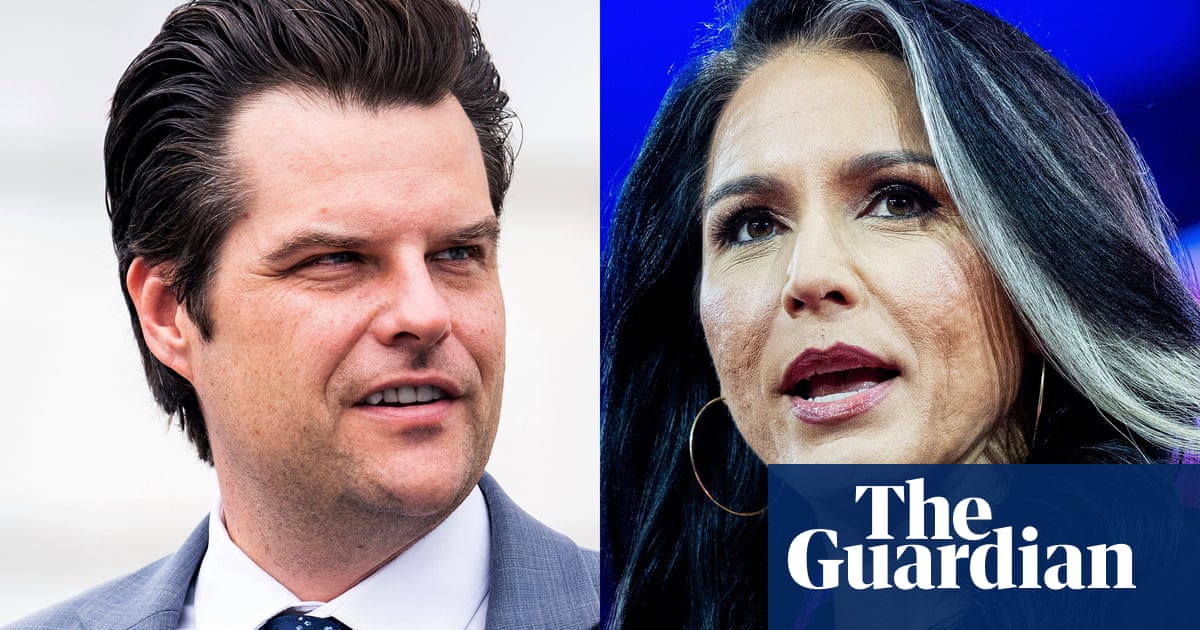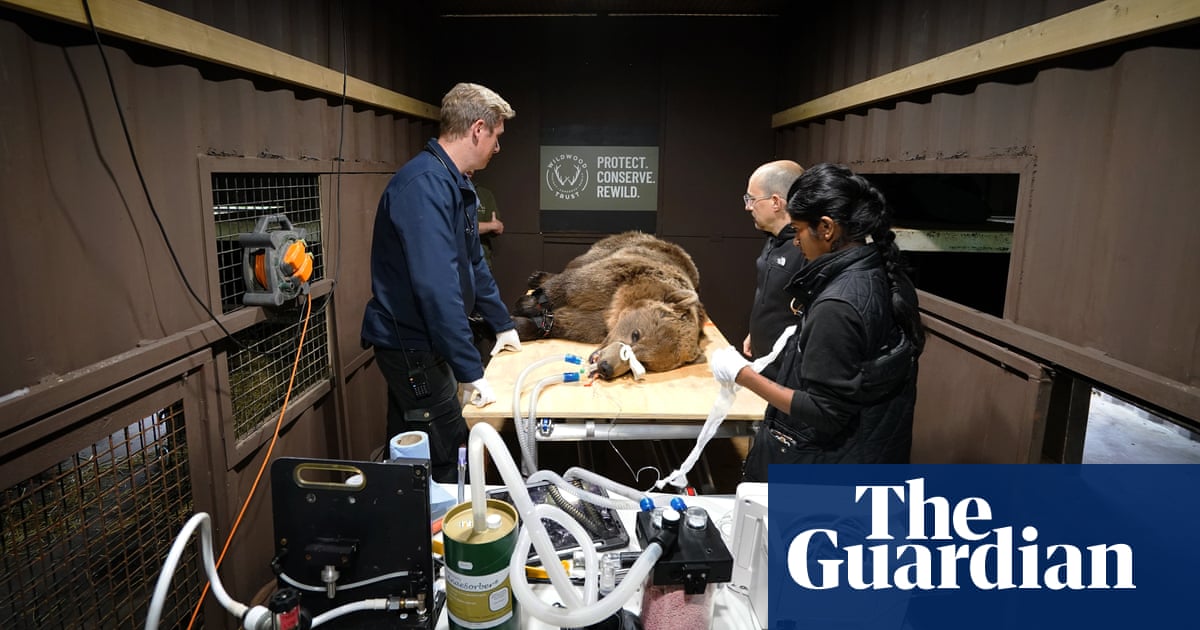Fears that Donald Trumpâs second presidency will be more extreme than his first have intensified amid a flurry of senior nominations that opponents have criticised as going from bad to worse.
Dismay over some of the president-electâs early picks escalated to outrage after the far-right Florida congressman Matt Gaetz was unveiled as his selection to be attorney general â a position Trump has previously said he views as the most important in his administration.
The choice provoked disbelief, even among Republicans, and has fueled concerns that Trump is intent on carrying out mass firings at the Department of Justice in retribution for criminal investigations it instigated against him.
Trump reportedly chose Gaetz, 42, after the congressman â who himself was subject to a two-year justice department investigation into suspected sex-trafficking that ended without charges â told Trump: âYeah, Iâll go over there and start cuttinâ fuckinâ heads.â
Others considered for the post were dismissed as too concerned with legal concepts or constitutional niceties.
Ty Cobb, a White House lawyer in Trumpâs first presidency, called Gaetzâs nomination âa big f⦠you to Americaâ.
âMatt Gaetz is just simply unqualified ⦠academically, professionally, ethically, morally and experientially,â he told CNN this week.
The nomination followed two other shock appointments: Tulsi Gabbard as director of national intelligence, and Fox Newsâs Pete Hegseth as defence secretary.
Gabbard, 43 â a former Democratic member of Congress turned Republican â would oversee Americaâs vast intelligence complex despite past accusations of being a Russian asset or spouting Kremlin talking points.
Her nomination followed repeated vows by Trump to purge intelligence chiefs who he considers to be part of a âdeep stateâ.
Army veteran Hegseth, 44, has railed against âwokeâ leadership in the military. He was nominated following reports Trump was considering issuing an early executive order that would establish a âwarrior boardâ empowered to recommend the removal of generals and admirals deemed to lack ârequisite leadership qualitiesâ.
And on Thursday, Trump announced that he had tapped the anti-vaccine crusader Robert F Kennedy Jr for the position of health and human services secretary, which will allow him to oversee the administration of the Affordable Care Act, Medicare and Medicaid.
Kennedy, who endorsed and campaigned for Trump after dropping his own third-party presidential bid, has established himself as an influential promoter of baseless conspiracy theories about vaccines and other public health staples, such as water fluoridation, which he opposes. Kennedy drew sharp rebuke in 2023 for remarking during an event that he believed the Covid-19 virus was âtargeted to attack Caucasians and Black peopleâ and spare Jewish and Chinese people.
On the campaign trail with Trump, he adopted the slogan âMake America healthy againâ, highlighting chronic illness as a top concern. In turn, Trump vowed to âlet him go wild on healthâ, sparking fears among public health experts about Kennedyâs influence in the Trump administration.
Some observers saw these nominations as a deliberate challenge to Senate Republicans, who on Wednesday elected John Thune to replace the retiring Mitch McConnell as Senate leader after the party won a 53-47 majority in the chamber in last weekâs general election.
The Senate is constitutionally responsible for vetting senior appointments in confirmation hearings. Forecasts have already rolled in noting that Gaetz in particular would struggle to win acceptance.
But Trump has urged the Senate to circumvent such hearings by allowing him to make recess appointments in what is seen as an early test of Thuneâs independence.
âThese choices seem designed to poke the Senate in the eye,â Michael Waldman, president of the Brennan Center for Justice â a non-partisan law and policy institute â told the New York Times. â[They] are so appalling theyâre a form of performance art.â
The three latest nominees overshadowed concerns about Trumpâs appointees on immigration, a key issue which he has highlighted by vowing mass deportations of an estimated 11 million undocumented immigrants.
Tom Homan, a hardline former acting director of Immigration and Customs Enforcement, has been chosen as border czar, while Kristi Noem, the governor of South Dakota, who earned notoriety by admitting that she shot her own dog, has been nominated as secretary of the Department of Homeland Security.
Trump has chosen an even more immoderate figure, Stephen Miller â the architect of the child separation policy for migrant families in his first presidency â as his deputy White House chief of staff for policy, a brief certain to include immigration.
Trump had also raised eyebrows with his choice of Mike Huckabee, a former governor of Arkansas, as US ambassador to Israel. Huckabee has previously championed internationally illegal Israeli settlements and has said Israel has a âtitle deedâ to the West Bank, which the Palestinians want as part of a future state; he calls the West Bank by its Hebrew name, Judea and Samaria.
Steve Witkoff, a golfing partner who was with Trump at his West Palm Beach golf club at the time of a second failed assassination attempt in September, has been chosen as Middle East envoy.
Elise Stefanik, a New York representative whose pugnacious questioning about antisemitism brought down two female Ivy League university heads, will be ambassador to the UN, a body she has frequently criticised.
Some nominations are relatively uncontroversial, including Marco Rubio, a senator for Florida, as secretary of state, and Susie Wiles, a veteran Republican operative and senior campaign adviser, as White House chief of staff.



